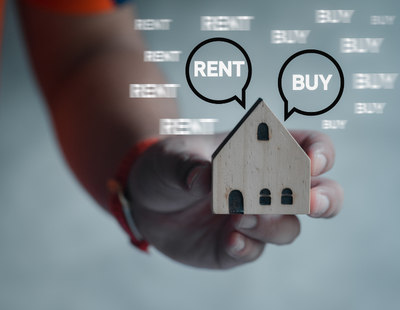Given the mounting stress of the cost of living for a significant portion of the population, many people will find relief and enjoy having the responsibility and pressure being put on the landlords, rather than themselves.
When you enter a rental agreement, any maintenance and repair jobs are to be sorted out by the landlords. If your shower starts trickling out cold water, or if your oven decides to stop working, it’s your responsibility to let the landlord know, but it’s not for you to expense.
This can help take the stress away from you, as you don’t need to invest time and money searching for a handyman or budgeting for maintenance costs. If you own property, any issues that arise become your responsibility, potentially causing significant financial strain.
Renters also don’t have to deal with the many taxes and hidden costs of owning their own home. Landlords will often include these taxes in the cost of your monthly rent. Much like the cost of maintenance, your rent will help pay any taxes on the property.
2. Access to facilities
Some complexes and apartments offer amenities that would cost an absolute fortune if included in a house purchase. For instance, facilities like fitness centres, indoor pools, and communal social areas are often unavailable for most people when purchasing a house.
Rather than using most of your budget on purchasing, installation, and upkeep costs, already having these facilities can make renting just that bit more attractive. These facilities can also provide the opportunity to meet other people and build a great social group with the people living close to you. It’s also a great way of saving money by not having to pay for a gym or pool membership.
3. Flexibility over where to live
When you’re buying a home, you’re committing to living in an area for a long time. For people who might want to relocate, travel for work or move in with someone else, this could feel quite restricting.
Imagine you've recently moved in with a friend, but you're considering living with your partner in a few years. Renters have the flexibility to terminate their lease after a specified period. Typically, once your lease expires (often after 12 months), you can choose to renew it for another year or explore other living options.
This arrangement is perfect for individuals who enjoy travelling, exploring new cities, and meeting new people, as you’re not tied down to a mortgage for a house. Additionally, it offers the flexibility to experiment with various types of properties, including houses, apartments, or bungalows.
4. Fixed amount of rent
Whilst owning a home may seem like a clever financial decision, with mortgage rates rising, it may be a good idea to look at alternatives.
Similarly to your monthly paycheck where you know exactly how much money is going in, when you’re renting a home, you also know how much is coming out every month. Whilst landlords can sometimes raise the rent a little, having a fixed agreement means you’re able to budget efficiently and not stress as much about money.
This is similar to homeowners who have fixed-rate mortgages, but many people don’t have this type of mortgage. In this day and age with mortgage rates increasing by the minute, those with adjustable-rate mortgages can see the price they pay each month fluctuating, which can be stressful and harder to budget.
5. You won’t have to save for a deposit
When you buy a home, chances are most lenders will ask for a deposit of at least 10% of the property value. In comparison, your tenancy deposit on a rented home will usually be around 5 weeks' rent, which is a lot less coming out of your bank account!
If the thought of spending heaps before you start living in your new home scares you, then renting might be a better option for you.
6. Tax Management and Financial Responsibility
Something that renters do not have to deal with are the many taxes and hidden costs of owning their own home. Landlords will often include these taxes in the cost of your monthly rent. Much like the cost of maintenance, your rent will help pay any taxes on the property.
When you buy your own home, you will have to pay taxes such as Stamp Duty Land Tax. This is only on homes over £250,000. If you buy a property that is worth less than that amount, you won't have to pay Stamp Duty.
When you own a property you have the option of selling up and moving to a new home. But, there are a lot more strings attached. You will have to pay to list your home, pay seller fees and estate agent admin fees. Selling a home is much more difficult than simply cancelling a rental contract.
We're excited to announce that we're working on building a shiny new website for readers of Landlord Today! As part of this process, commenting on articles will be temporarily disabled. We look forward to sharing our new and improved Landlord Today website with you shortly!








.png)

(1).png)







.jpg)






%20(002).png)




